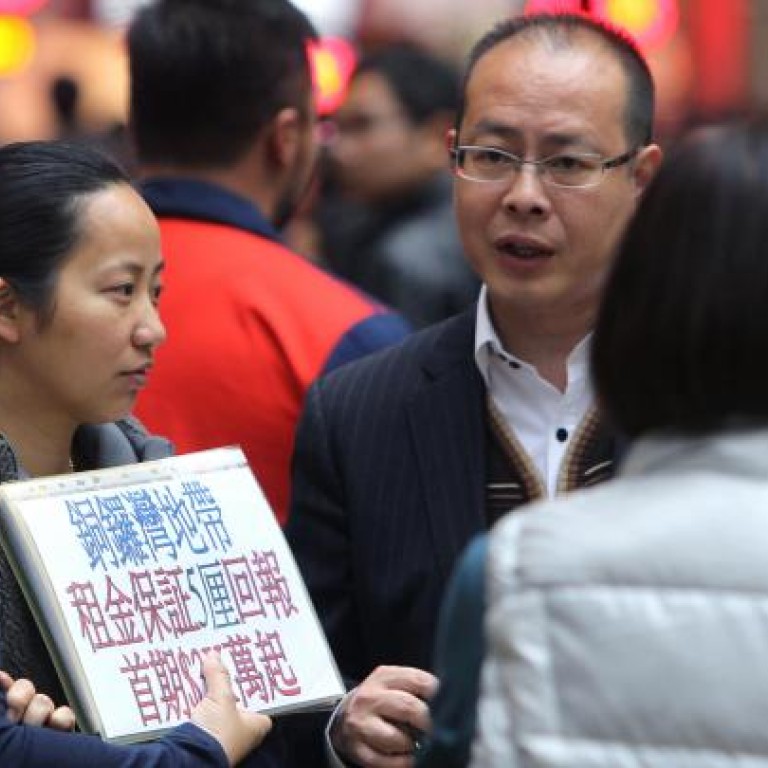
New curbs likely to hit industrial, retail sales hardest
As a measure of speculative deals in the sector, data from property broker Midland IC&I show that 1,276 confirmor sales were transacted in the industrial property market last year. Confirmor sales are deals in which a property is resold before the original transaction is completed.
Industrial and retail properties are expected to be the hardest-hit among non-residential properties by the government's new measures to curb property speculation.
As a measure of speculative deals in the sector, data from property broker Midland IC&I show that 1,276 confirmor sales were transacted in the industrial property market last year. Confirmor sales are deals in which a property is resold before the original transaction is completed.
That figure, the highest since record-keeping began in 1997, exceeded the confirmor sales of retail and office properties last year.
The retail market saw the second-highest number of confirmor sales, with such deals surging 102.5 per cent to 644 last year.
Property agents now expect the number of these deals - done mainly by speculators hoping to make a quick capital gain before taking transfer of a property - to drop sharply due to the measures announced last Friday.
The measures, which took effect last Saturday, include stamp duties doubling to as much as 8.5 per cent for non-residential properties, and buyers are now required to pay the stamp duty upon the conclusion of the sales agreement. Buyers previously had to pay the stamp duty only after completion of the deal.
Desmond Poon Chi-ming, associate director at Chartersince Surveyors, expects the new rules will deter investors from doing confirmor sales of all property types, particularly industrial and retail properties. With speculators leaving the market, confirmor sales of industrial and retail properties - where such transactions were common - are likely to drop by at least 70 per cent this year, Poon forecasts.
The retail property market will be hit hardest, Poon says, because sales activity in that market have been high and properties looked fully-valued at present prices, while the rental yield of some second-tier locations have declined to as low as below 2 per cent. Alvan Chan, director of Midland IC&I's industrial department, expects the number of confirmor sales in the industrial market to decline by more than 50 per cent.
"Confirmor sales were very active last year, particularly for industrial properties in Kwun Tong, where about 40 per cent of the deals were confirmor transactions," Chan said.
"Now investors have adopted a 'wait-and-see' attitude towards the market."
Sunny Yam Wing-yin, chairman of Sheraton Valuers, expects confirmor sales in the retail market to fall by more than 80 per cent. "Most of the shops in prime locations are selling for more than HK$20 million," Yam said. Taking into account the new stamp duty for buyers and the realtor's commission, "the value of a shop will now have to increase by 10.5 per cent before the deal needs to be completed if the buyer wants to re-sell at a profit".
"Confirmor sale is no longer profitable," he said.
To boost sales after news of the new curbs, Chinese Estates raised the commission for agents to secure sales of its small shops at Causeway Place from 4 per cent to 6 per cent.

